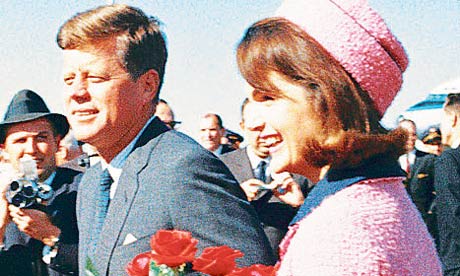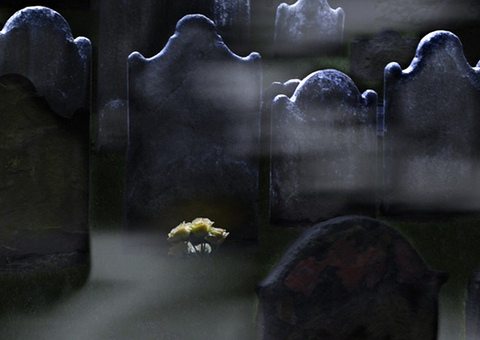People are commonly said to remember their location when told of President John F Kennedy's assassination, but many must also wish the place they had been on 22 November 1963 was Dallas, where they might somehow have diverted the motorcade or prevented Lee Harvey Oswald from entering the Texas School Book Depository. The possibility of such an intervention must number, along with its darker twin of going back and killing Hitler, among the principal fantasies of time travel, and is explored in the 54th work of fiction by Stephen King.
In 11.22.63, Jake Epping, a schoolteacher in Maine (a childhood reference point as recurrent in King's fiction as New Jersey in Philip Roth's), is summoned by the owner of Al's Diner, a local eaterie that has become popular but also suspect as a result of being able to sell, in 2011, burgers at near-1950s prices. The restaurateur, now mortally ill, has found a portal in his pantry that leads to a particular day in 1958, where the time-traveller can begin a stay lasting months or even potentially years, always returning two minutes later. Cancer has interrupted Al during a five-year mission to prevent the event that he believes to have misdirected American history: JFK's death. With the moral arm-lock of a dying man, Al passes on the task to Jake.
Time machines that travel backwards invite a writer towards period detail and nostalgia, and it is striking that King's device defaults to a year in which he would have been an 11-year-old schoolboy in Maine. Jake, who adopts the cover identity of real estate salesman George Amberson when he goes back, luxuriates in the unadulterated root beers and chocolate pies of an era before fast food.
"I wanted to see the USA in my Chevrolet," he sentimentally declares on the brink of one trip. "America was calling me." And, though the "temporal bedouin" from 2011 sometimes struggles with the lingo (what he calls a "motel" is a "Motor Court" there), the flashback America is largely a better one. Back in these days, baseball is played "as it was meant to be played" and Jake/George finds the prices astonishingly low except, interestingly, oranges and long-distance phone calls, both exotic luxuries at the time. Less heart-warmingly, a cancerous miasma of cigarette smoke clouds every 1958 scene and racism is standard.
The only sustained criticism of King, apart from the howls of some incurable literary snobs, has been his books' alternative use as weight-lifter's training aids and there are moments, early in this 700-page work, when we may wonder if the mission couldn't have begun in, say, 1962. But King has an advanced understanding of narrative structure and it's soon clear that his protagonist needs first to undertake a trial mission to establish the rules of intrusion. Running under the book is the question of whether we would have the moral right to dam the river of time, a dilemma explored through a fictional Hitler-like president in King's The Dead Zone (1979).
A novel about thwarting Lee Harvey Oswald is crucially different from one about killing Hitler because many readers will question whether the hero is going after the right man. Jake/George regularly frets that, even if he changes the shape of Oswald's day on 11.22.63, he may discover that the conspiracy theorists were right and JFK is taken out by another gunman from the grassy knoll or elsewhere.
This nagging doubt about the security of the history being altered is beautifully used by King, who also cleverly exploits a major fascination of time-travel or counter-history stories: the historical adjustments that result from meddling. While the latter parts of the novel deserve heavy protection against plot-spoiling, it can be said that the racist Governor George Wallace, Paul McCartney and Hillary Clinton are among those whose Wikipedia entries are intriguingly re-edited.
In a thoughtful afterword – in which King suggests that he partly intends the novel as a warning against "the consequences of political extremism" in contemporary America – the writer reveals that he first tried to write this book in 1972 but felt too close to the raw pain of the assassination. So this book makes, with the monumental Under the Dome (2009), the second recent case in which King has gone back in time to complete a project that previously eluded him.
With some senior writers, the dusting out of bottom drawers indicates creative stasis. But King, whose writing life represents among other things a model of canny career management, has waited until the right time for these novels. In these books, the reader feels the benefit of 40 years of narrative craftsmanship and reflection on his nation's history. Going backwards proves to be another step forward for the most remarkable storyteller in modern American literature.
Mark Lawson's Enough Is Enough is published by Picador.











